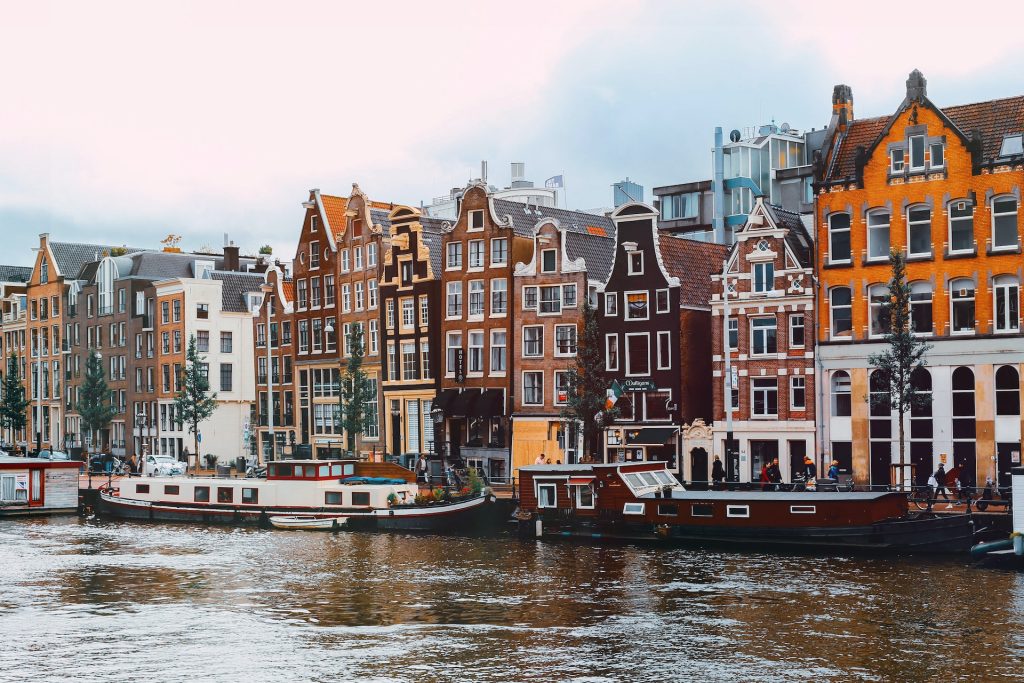Although the Netherlands is known as a European paradise for cannabis users due to its policy of tolerance towards so-called “soft drugs,” cannabis cultivation in the Netherlands is still illegal. But a pilot program announced by the Ministry of Publish Health and Justice is set to begin by the end of this year and could pave the way for the full legalization of cannabis sales.
The Netherlands to Launch Pilot Program for Legal Cannabis Sales


Although the Netherlands is known as a European paradise for cannabis users due to its policy of tolerance towards so-called “soft drugs,” cannabis cultivation in the Netherlands is still illegal. But a pilot program set to begin by the end of this year could pave the way for the full legalization of cannabis sales.
Legal Cannabis Pilot Program Announced
The Ministry of Public Health and Justice in the Netherlands announced Feb. 22 the start of the initial phase of the experiment. This pilot program is set to begin in the fourth quarter of this year, or between October and December 2023, and will cover the municipalities of Tilburg and Breda, located in the country’s southern region.
“Together with Justice Minister Yesilgoz-Zegerius, we are determined to make the cannabis experiment a success. I can also sense the enthusiasm among all the participants, which is why I am happy that we can take the first step here even before the experiment officially begins,” Health Minister Ernst Kuipers said in a press release.
Netherlands Pilot Program to Solve Gray Areas for Coffee Shops
Dutch coffee shops are licensed by local councils for the sale of cannabis products, but they obtain their goods from the illegal market. Therefore, the goal of the Netherlands experiment is to eliminate this gray market and reduce related crime.
Each coffee shop will be allowed to store a maximum of 500 grams of legally grown cannabis. However, coffee shops will also be allowed to buy cannabis from their previous illegal suppliers in addition to official legal growers.
The mayors of Tilburg and Breda will be responsible for enforcing regulations on cannabis available in coffee shops.
Netherlands Legal Cannabis Pilot Program to Launch 2024
The Netherlands pilot program will end in the first quarter of 2024, after which the government will evaluate the results and decide whether all coffee shops in participating municipalities will be allowed to sell legal cannabis.
Products sold under the pilot program must meet government requirements for quality, labeling, and packaging. However, there will be no limit on THC concentration, and producers will be free to set their own prices.
The Dutch Senate has approved a proposal for a pilot program to sell legal cannabis in 2019. Despite this approval, the launch of the Netherlands program was postponed due to several obstacles, including logistical challenges and difficulties for growers to obtain a bank account. These challenges stemmed from banks’ concerns about potential money laundering activities, which led to delays in the launch of the pilot program, according to Dutch News.
To assess whether the Netherlands experiment can be launched in the first quarter of 2024 and expanded to other cities that have joined the pilot, the ministries will continue closely monitoring grower progress.
Ten Cities Have Joined the Netherlands Pilot
Amsterdam, which initially decided not to participate in the Netherlands pilot program, recently expressed interest in participating, offering to include one of its seven municipalities in the experiment.
Amsterdam’s interest in joining the pilot program came after the Dutch capital announced a ban on cannabis smoking in its famous red-light district, set to take effect in May 2023.
The Netherlands is the second European country to launch a pilot program to regulate the sale of legal cannabis. Switzerland this year also initiated a pilot project that will last three years to assess the feasibility of legalizing cannabis in the country.
However, other European countries, such as Germany and the Czech Republic, have opted for a more direct path to regulate cannabis sales than the Netherlands, developing cannabis regulations without small-scale experimentation.
—
(Featured image by Nastya Dulhiier via Unsplash)
DISCLAIMER: This article was written by a third-party contributor and does not reflect the opinion of Hemp.im, its management, staff, or its associates. Please review our disclaimer for more information.
This article may include forward-looking statements. These forward-looking statements generally are identified by the words “believe,” “project,” “estimate,” “become,” “plan,” “will,” and similar expressions. These forward-looking statements involve known and unknown risks as well as uncertainties, including those discussed in the following cautionary statements and elsewhere in this article and on this site. Although the company may believe that its expectations are based on reasonable assumptions, the actual results that the company may achieve may differ materially from any forward-looking statements, which reflect the opinions of the management of the company only as of the date hereof. Additionally, please make sure to read these important disclosures.
First published in Fakty Konopne, a third-party contributor translated and adapted the article from the original. In case of discrepancy, the original will prevail.
Although we made reasonable efforts to provide accurate translations, some parts may be incorrect. Hemp.im assumes no responsibility for errors, omissions or ambiguities in the translations provided on this website. Any person or entity relying on translated content does so at their own risk. Hemp.im is not responsible for losses caused by such reliance on the accuracy or reliability of translated information. If you wish to report an error or inaccuracy in the translation, we encourage you to contact us.



Comments are closed for this post.